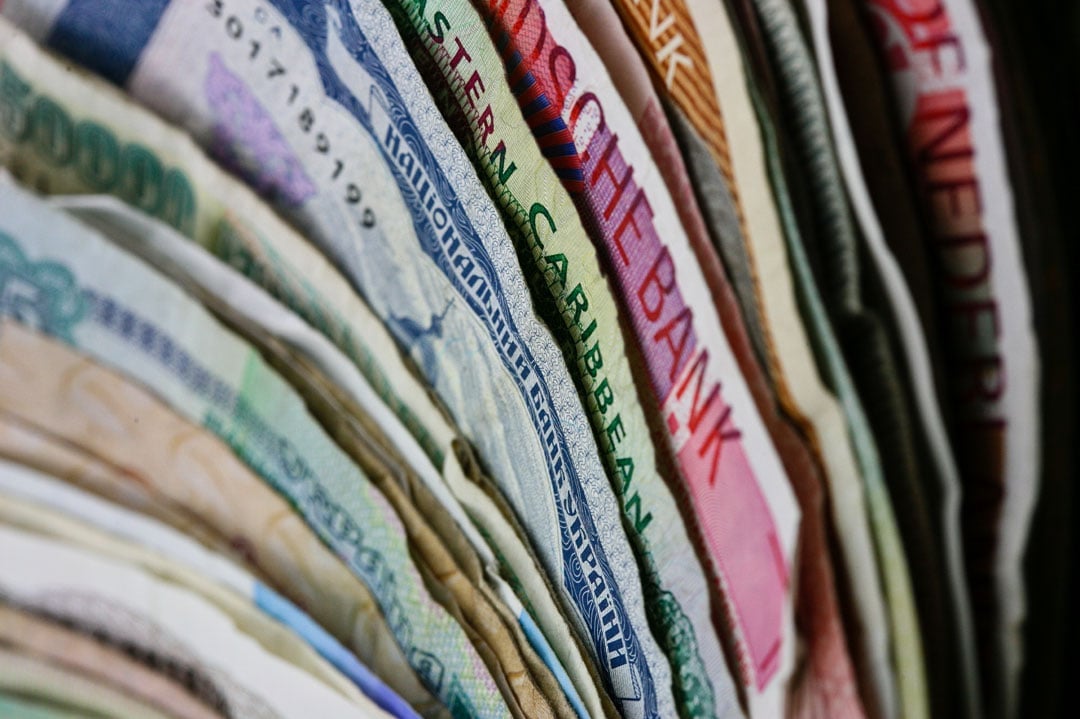Currency movements for the month of August are mainly attributed to hyperinflation and government policy changes. Several South American countries including Venezuela and Argentina continue to see their currencies depreciate due to inflation. Protests in Syria and Sierra Leone relating to economic conditions coincided the with depreciation of currencies.
Currencies Losing Value Against the USD
RUB – Russian Ruble
Russia’s invasion of Ukraine continues to impact the Russian economy. Sanctions, reduced oil exports, and high military spending led to a balance of payments deficit and inflationary pressure. Criticism from the Kremlin directed at the central bank prompted an emergency meeting in mid-August during which the bank significantly increased the key interest rate and warned that further increases could be coming.
MRU – Mauritanian Ouguiya
Mauritania’s economy is vulnerable to climate change related disasters. Droughts and floods are the main weather events that impact mining production. Security risks in the Sahel region are also prevalent.
SLL- Sierra Leonean Leone
High inflation in Sierra Leone led to ongoing protests at the rising cost of living and was a major topic during the recent presidential election. The incumbent, Julius Maada Bio, won re-election but after rallying last month, the leone depreciated again. Amid a global slowdown, the central bank raised its lending rate again, but there are a limited number of tools available to use against external price pressures.
VES – Venezuelan Bolivar
Hyperinflation continues to plague the country causing food insecurity to rise. Fuel production has not improved, and fuel costs have also affected agriculture production.
ARS – Argentine Peso
The Argentine peso decreased significantly after far-right Javier Milei won the primary vote for the upcoming presidential election in October. Javier Milei has voiced controversial social and cultural opinions and has argued for abandoning the use of the Argentine peso in favor of the U.S. dollar. The Argentine stock market reacted negatively when Mr. Milei won the primary.
SYP – Syrian Pound
The Syrian pound depreciated to record lows following the removal of subsidies for several commodities. These commodities include gas, diesel, and bread and have caused mass anti-government protests in parts of the country. The government doubled pensions and wages for the public sector to give short term relief to some Syrians with the rising prices for commodities.
Currencies Gaining Value against the USD:
ZWL – Zimbabwean Dollar
The Zimbabwean dollar appreciated after a set of policy interventions were announced. These interventions included a requirement for imports to be paid in Zimbabwean dollars except for luxury goods. Government institutions were also told to collect charges in the domestic currency. With these directives, the need for Zimbabwean dollars has soared, pushing the value and utility of that currency up against the U.S. dollar.
How do currency changes affect compensation?
For up-to-date figures, please reach out to your AIRINC representative or click here to reach our inquiries team now.
Subscribe to our blog to stay updated on changes around the world that impact Global Mobility, including your cost of living allowances.




%20(29).png)

%20(28).png)

